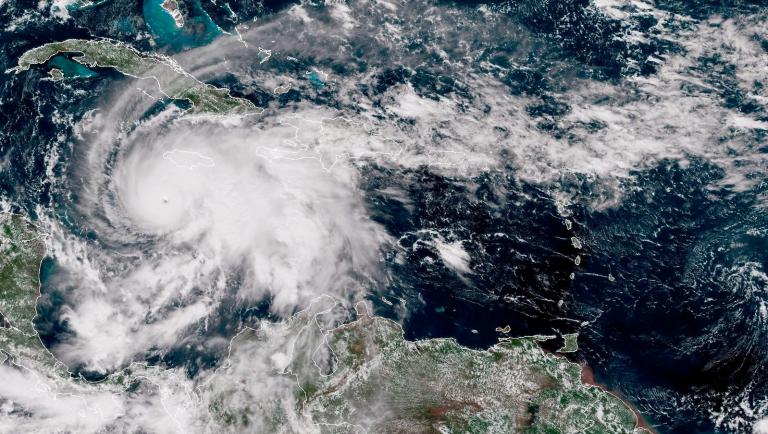Whatever the Republican candidates for president may have told you, climate change and evolution are both realities of nature. But it turns out that in a fight-to-the-death throwdown, climate change would win by a mile. A new study published in the journal PLoS One has found that over the next 90 years, the climate in North America will change faster than species can adapt.
The rate at which species can change to adapt to their environment tracks with the climate's change rate over the last 300,000 years. The climate variations in that time have been nothing to sneeze at — we're talking about three major glacial cycles — but the planet's various critters have mostly managed to stay on top of things. But climate change over the next century will be orders of magnitude faster, and will leave adaptation in the dust, researchers say.
This doesn't spell "mass extinction" or anything. But it means that species will be adapting by changing or contracting their range, instead of by changing their climate tolerance. They'll have to move far and fast, though — maybe as much as a mile and a half a year, and with a change in range up to 580,000 square miles. Animals might not be able to migrate at a rate that would outpace climate change.
[T]he researchers calculate the expected changes in range at the lower and upper extremes of warming predicted by the Intergovernmental Panel on Climate Change — between 1.1 degree and 6.4 degrees Celsius. They calculate that rattlesnake ranges have moved an average of only 2.3 meters a year over the past 320,000 years and that their tolerances to climate have evolved about 100 to 1,000 times slower, indicating that range shifts are the only way that rattlesnakes have coped with climate change in the recent past. With projected climate change in the next 90 years, the ranges would be displaced by a remarkable 430 meters to 2,400 meters a year.
These findings are based on the North American rattlesnake, so possibly it's just rattlesnakes who are screwed. But the researchers say they're a good proxy:
Rattlesnakes are good indicators of climate change because they are ectotherms, which depend on the environment to regulate their body temperatures. But [the study authors] note that many organisms will be affected by climate change, and their study provides a model for examining what may happen with other species. Their future research could address the past and future effects of climate change on other types of snakes and on the biological communities of snakes.
Update: The wire service where we found this story said "the climate will change more than 100 times faster than the rate at which species can adapt," but on reading the study more thoroughly I don't think that's what it says, so I've changed the headline. It says the ranges will have to change (at least but probably way more than) 100 times faster than they have in the past, which isn't the same. Take-home message, though: Animals, or at least rattlesnakes, better get scramblin', because climate change will outpace their ability to adapt and they'll need to move their habitats ever faster to get ahead.



